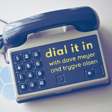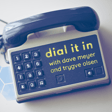
S2 Ep 13 Mastering the Art of Human Intelligence with Gavin Stone
This episode of Dial It In features Gavin Stone, a security and intelligence covert specialist with 20 years of experience. He discusses his book on detecting lies and his expertise in human intel, surveillance, anti-surveillance, and tradecraft skills. Stone's unique abilities include elicitation, deception, detection, influence, persuasion, and damage mitigation in high-risk situations.
…
Dial It In Podcast is where we gathered our favorite people together to share their advice on how to drive revenue, through storytelling and without the boring sales jargon. Our primary focus is marketing and sales for manufacturing and B2B service businesses, but we’ll cover topics across the entire spectrum of business. This isn’t a deep, naval-gazing show… we like to have lively chats that are fun, and full of useful insights. Brought to you by BizzyWeb.
Links:
Website: dialitinpodcast.com
BizzyWeb site: bizzyweb.com
Connect with Dave Meyer
Connect with Trygve Olsen

